
 Caves of Steel (Robots #1)
Caves of Steel (Robots #1)
By Isaac Asimov, read by William Dufris
Publisher: Random House Audio
Publication date: 15 July 2014
[UNABRIDGED] – 7 hours, 43 minutes
Listen to an excerpt: | MP3 |
Themes: / science fiction / robots / detectives / over-population / colonization /
Publisher summary:
A millennium into the future two advancements have altered the course of human history: the colonization of the galaxy and the creation of the positronic brain. Isaac Asimov’s Robot novels chronicle the unlikely partnership between a New York City detective and a humanoid robot who must learn to work together. Like most people left behind on an over-populated Earth, New York City police detective Elijah Baley had little love for either the arrogant Spacers or their robotic companions.
“Like most people on the over-populated Earth, New York City police detective Elijah Baley has little love for either the arrogant Spacers or their robotic companions. But when a prominent Spacer is murdered under mysterious circumstances, Baley is ordered to help track down the killer. Then he learned that they had assigned him a partner: R. Daneel Olivaw. Worst of all was that the ” R” stood for robot.”
I originally read this book when I was a teenager and loved it from the beginning. Isaac Asimov’s descriptions of an overpopulated future Earth were de rigueur for science fiction of the time. What gave this story a fresh spin was that it was a bona fide mystery.
Many years later, listening to William Dufris’ splendid narration, it still holds up. I still remembered the main points of the mystery and detective Lige Bailey’s personality. This left me free to fully appreciate the details of Asimov’s imagined future society, complete with spacemen and robots to provide tension and interest.
I’m not sure if I completely forgot or just never registered the points Asimov was making in this book about technology, adaptation, and the human soul. I was quite surprised to see that Lige Bailey knew his Bible so well that he could quote it in either the King James version or the modern version. And that he used religion as a main point of differentiation (along with art, beauty, and other intangibles) between humans and robots. Atheist Isaac Asimov didn’t deny that faith can lift people higher and that is something one rarely, if ever, sees these days in science fiction.
I also was really interested in watching the way the germ of an idea took hold and was spread from person to person. It was fascinating to see how many things that idea applied to once it had wormed its way into the person’s consciousness.
All in all, this short but satisfying mystery is much richer than I recalled. It was greatly enhanced by the audio where William Dufris became a one man theater company in the way he voiced different characters. There was never any fear of my mistaking who was talking in straight exchanges of dialogue. He was simply masterful whether it was world-weary detective Bailey, slightly robotic Daneel Olivaw, jumpy Jessie, or the nervous Commissioner.
Highly recommended.
INTERESTING SIDE NOTE
Wikipedia notes:
It is a detective story and illustrates an idea Asimov advocated, that science fiction is a flavor that can be applied to any literary genre, rather than a limited genre itself. Specifically, in the book Asimov’s Mysteries, he states that he wrote the novel in response to the assertion by editor John W. Campbell that mystery and science fiction were incompatible genres. Campbell had said that the science fiction writer could invent “facts” in his imaginary future that the reader would not know. Asimov countered that there were rules implicit in the art of writing mysteries, and that the clues could be in the plot, even if they were not obvious, or were deliberately obfuscated.
All hail opinionated John Campbell and Isaac Asimov’s determination to prove him wrong. Today there are a lot of different mash-ups included in the science fiction genre and Asimov led the way with this book.
Posted by Julie D.
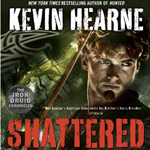 Shattered (The Iron Druid Chronicles, #7)
Shattered (The Iron Druid Chronicles, #7)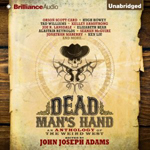 Dead Man’s Hand: An Anthology of the Weird WestEdited by John Joseph Adams, by various (see table of contents below)
Dead Man’s Hand: An Anthology of the Weird WestEdited by John Joseph Adams, by various (see table of contents below)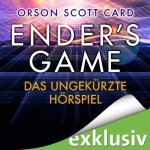
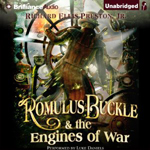 Romulus Buckle & the Engines of War (The Chronicles of the Pneumatic #2)
Romulus Buckle & the Engines of War (The Chronicles of the Pneumatic #2)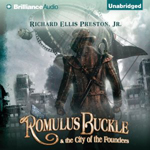 Romulus Buckle & the City of the Founders (Chronicles of the Pneumatic #1)
Romulus Buckle & the City of the Founders (Chronicles of the Pneumatic #1)